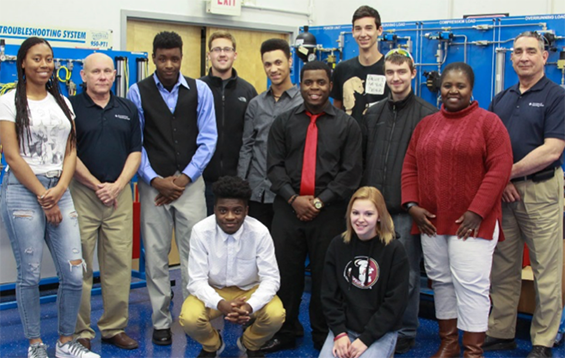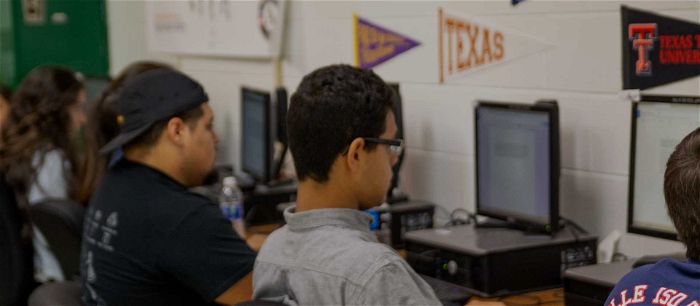I’ve been waiting 15 years for this moment. On January 24th, my home state, Massachusetts, submitted a proposal to the annual joint meeting of the Boards of Elementary and Secondary Education and Higher Education to establish career-focused early college high schools. Early colleges are schools or programs within schools designed to enable students to take college-level courses in high school for free. The combination of free tuition and early college enrollment are strong predictors that a young person will attain a two- or four-year college degree, and research shows that early college high schools are a particularly effective approach to improving college access and completion for low-income students and students of color.
Other states have had early colleges for years. Beginning in 2002, I led a team implementing the national Gates-funded early college high school initiative at JFF. We worked with 13 intermediary organizations across the United States to create the high school college partnerships and policy supports needed for early colleges to develop. From that initial investment, about 300 early colleges were established across the nation, serving approximately 80,000 students (and many more developed with other funding sources). Progress to date is impressive. Low-income students and students of color graduate from these high schools with an average of one year of tuition-free college credit. About one-third of students earn an associate’s degree in high school, and many go on immediately to complete a bachelor’s degree.
There are advantages to being a late bloomer: The Commonwealth’s early college model draws on 15 years of design, practice, and policy lessons from across the country. For example, JFF’s Pathways to Prosperity Network introduced a career focus into the early college model. Now, 15 states are implementing career-focused early colleges, aligning the curriculum with high-growth areas of the economy so that students will have a leg up in the job market. The career focus appeals to students and families, and it creates a pipeline of young professionals for career areas such as information technology, biotech, health care, and advanced manufacturing.
A second benefit to joining the movement later is that Massachusetts has learned some valuable lessons about designing early college programs so they serve as an engine for college entrance and retention. Ensuring that students earn a minimum number of credits in the right combination of courses means that students leave high school prepared for college-level work and don’t require remediation, a major cause of dropping out. The additional cost to run an early college program, pegged at about $700 to $900 per student per year, is substantially less than what colleges spend on remediation––to say nothing of the earnings lost and the debt incurred when students leave college with no degree.
Massachusetts can also apply lessons from a growing early college grassroots movement. The state benefited from The Parthenon Group’s assistance in thinking through its early college design. Parthenon’s report, Breaking Down Silos to Put Students on the Path to Success: The Promise of Early College in Massachusetts, catalogued 27 early college programs in our public community colleges and highlighted key lessons from previous early college efforts in the state. For example, the report identified significant challenges to partnership development without state funding and clear design guidelines.
Learning from this history, Massachusetts is planning to establish early colleges through a designation process, which provides essential startup funding and requires high school college partnerships to meet specific design criteria. These design tenets include the five core principles of the original Gates initiative: Early college high schools must provide equitable access, include guided academic pathways, offer enhanced student support, be connected to careers, and include effective partnerships.
Thanks to the state legislature’s interest, the preparation of a new state budget, and some state funding to develop pilots, the early college model is now poised to drive postsecondary completion, serve as a laboratory for better aligning high school and college requirements, and stimulate the Commonwealth’s economy. Early college career pathways will equip our young people with the academic and technical skills needed to fill open positions in high-demand sectors that fuel economic growth. I am proud to have played a role in developing early colleges around the country and happy to see my work coming to fruition in Massachusetts.
RELATED PUBLICATIONS:
How to Scale College in High School
Beyond Academic Readiness: Building a Broader Range of Skills for Success in College
How High Schools and Colleges Can Team Up to Use Data and Increase Student Success






